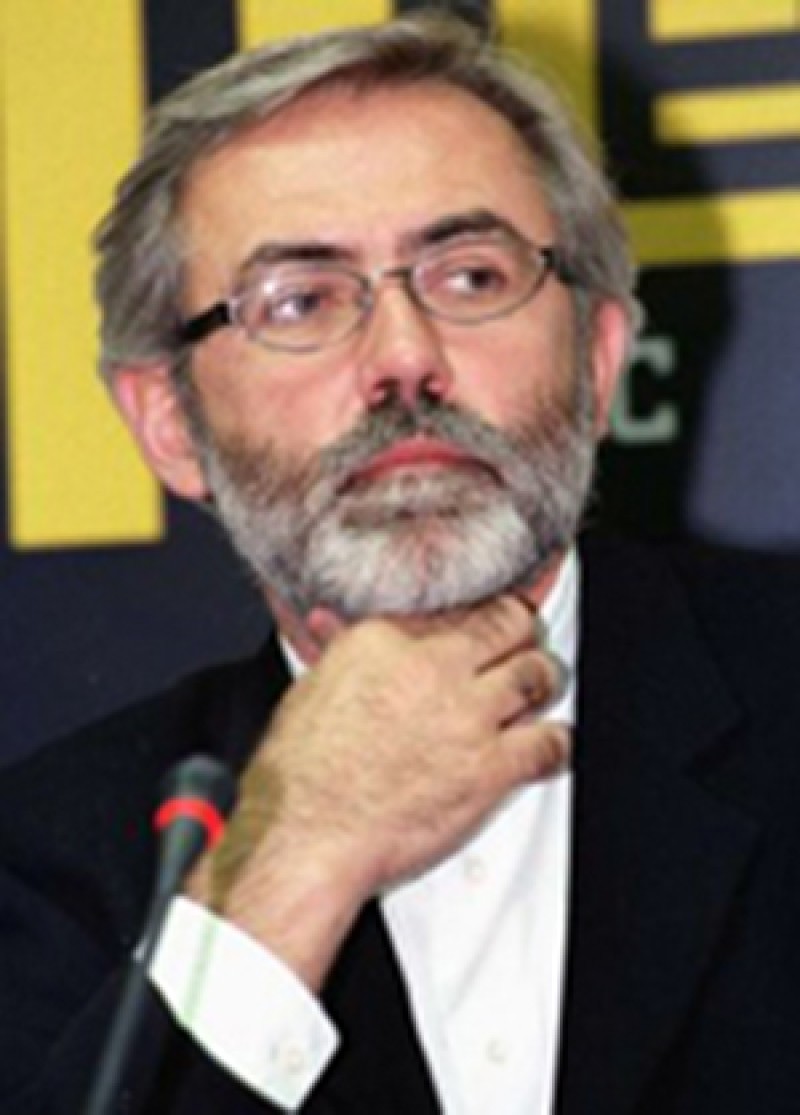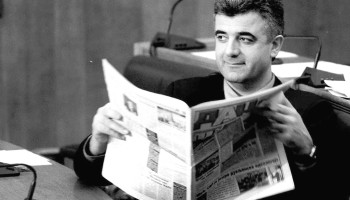Curuvija, a vehement critic of the regime of former Yugoslav President Slobodan Milosevic, was shot in the back 17 times in front of his house in Belgrade on Apr. 11, 1999.
The murder sent shockwaves throughout Serbia, but remained unsolved for more than a decade.
In January 2014, prosecutors accused former Yugoslav chief of state security, Radomir Markovic, along with three other ex-security officers for Yugoslavia – Ratko Romic, Milan Radonjic and Miroslav Kurak –of arranging the murder between them.
Romic, Radonjic and Markovic are in custody, but Kurak – thought by prosecutors to have pulled the trigger – is still at large.
On Tuesday, Curuvija's common-law wife Branka Prpa – who was there when he was shot – told the Special Court in Belgrade that the images she'd seen of Kurak did not look like the man who killed her husband, reports Serbian state television (RTS).
Several other people were called this week to shed light on the complex circumstances of the murder.
Curuvija's daughter Jelena took the stand, telling the court her father had fallen out with President Milosevic's wife, Mira Markovic.
She said her father had been under pressure from the government since October 1998, when it started to shut down his newspapers.
On Monday, Romic – who is suspected of hitting Prpa on the head with a pistol during the attack – told the court his alibi: that on the day of the murder, he went to work before going to celebrate his daughter's birthday in the afternoon.
Markovic, already serving a 40-year prison sentence for a separate attack when he was implicated in this murder, also testified Monday that Curuvija had been under surveillance by the State Security Service since 1996.
The star witness in the case is former state security officer and commander of special operations Milorad Ulemek Legija, who is serving a 40-year prison sentence for organizing the murder of former Prime Minister of Serbia, Zoran Djindjic.
Legija told investigators in January 2014 that, before Curuvija's murder, Markovic had asked him to perform the hit, but that he turned down the request.
His statement led to the arrests of Romic and Radonjic.
Radonjic, Romic and Markovic pleaded not guilty when the trial began in June, while Kurak is being tried in absentia.
Curuvija was the co-founder, editor-in-chief and, later, the sole proprietor of Serbia's first privately owned daily newspaper in more than 50 years, the Dnevni Telegraf, established in 1996.
Two years later, he started an additional news magazine, Evropljanin.
In October 1998, the Serbian government shut down the Telegraf in a crackdown on independent media. Curuvija, however, continued to publish his articles from Montenegro.
Shortly before his murder, Curuvija testified to the United States Congress that "free press is no longer possible in Serbia".
He added that he was subject to harrassment by the government due to his articles about Milosevic during NATO's bombing of Serbia.
Al-Jazeera reports that the legal representative of Curuvija's children, Slobodan Ruzic, claims the order for Curuvija's murder must have come from the top – Slobodan Milosevic himself.
In 2013, Curuvija's children Jelena and Rade established the Slavko Curuvija Foundation, with the goal of supporting investigative journalism and improving the quality of media in Serbia.
The street on which Curuvija was killed carries his name today.






